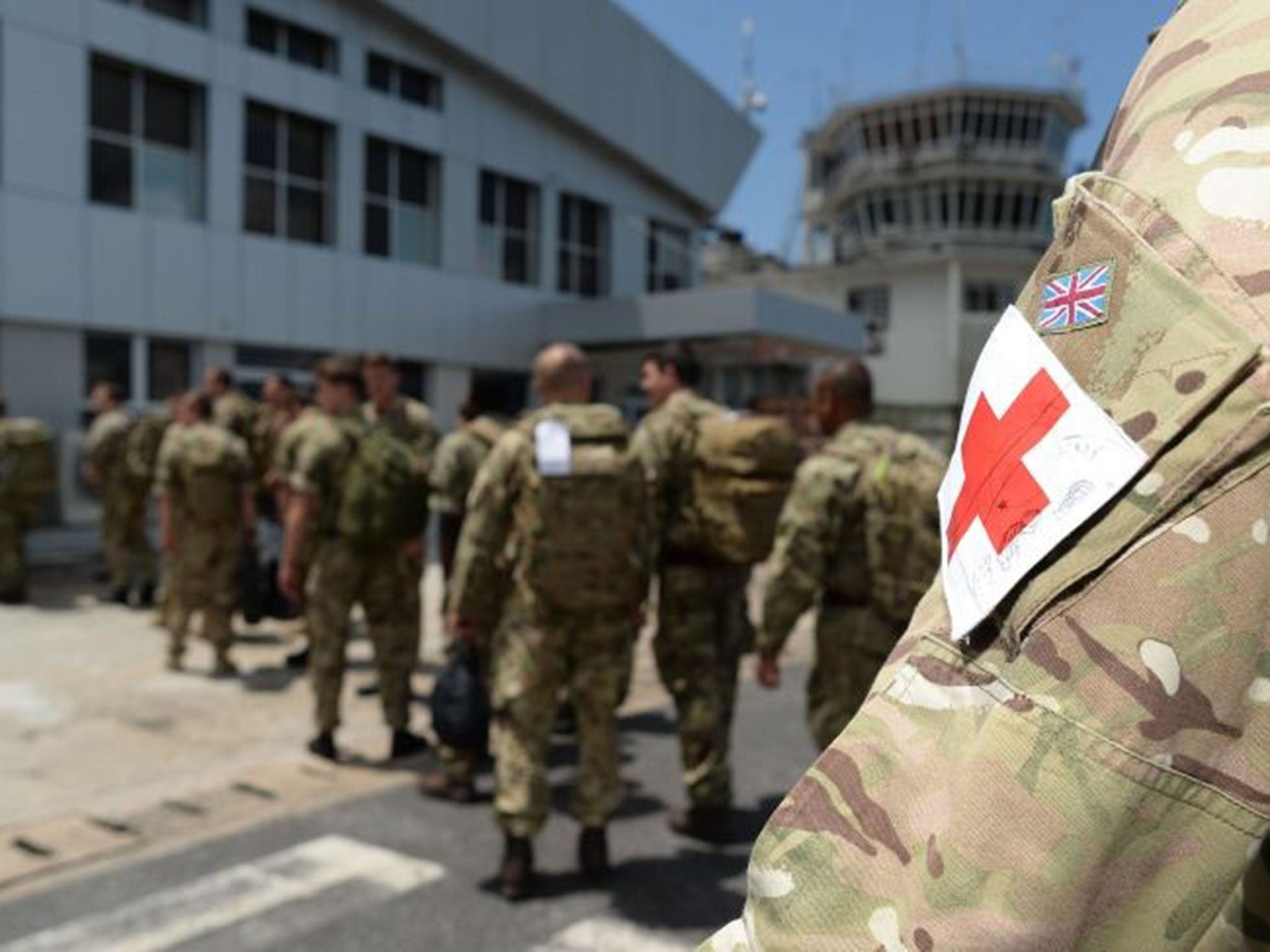Ebola outbreak: Drug banned in US given to British soldiers fighting the virus in West Africa
Exclusive: Anti-malarial with links to psychosis and hallucinations prescribed for service personnel currently deployed in Sierra Leone

Your support helps us to tell the story
From reproductive rights to climate change to Big Tech, The Independent is on the ground when the story is developing. Whether it's investigating the financials of Elon Musk's pro-Trump PAC or producing our latest documentary, 'The A Word', which shines a light on the American women fighting for reproductive rights, we know how important it is to parse out the facts from the messaging.
At such a critical moment in US history, we need reporters on the ground. Your donation allows us to keep sending journalists to speak to both sides of the story.
The Independent is trusted by Americans across the entire political spectrum. And unlike many other quality news outlets, we choose not to lock Americans out of our reporting and analysis with paywalls. We believe quality journalism should be available to everyone, paid for by those who can afford it.
Your support makes all the difference.British troops sent to help combat the Ebola outbreak in West Africa are at increased risk of becoming psychotic or suicidal due to the Ministry of Defence's refusal to stop using mefloquine, the controversial anti-malarial drug.
Lariam (its brand name) is among the anti-malarials being given to the 800 service personnel currently deployed to Sierra Leone on Operation Gritrock.
Fears over the risks of psychosis and suicide prompted the US military to declare it a "drug of last resort" in April 2013, and the US Special Forces Command banned its use more than a year ago. Despite this British soldiers are still being given the drug.
The MoD admitted it continued to prescribe mefloquine as "part of a range of malaria prevention treatments". Officials acknowledge the drug has the potential to cause "side-effects and adverse reactions" and stress the "exact choice of drug" is dependent on factors such as where people are being sent, the health of the individual and their past history.
It is understood that at least one member of the British military in Freetown, Sierra Leone, has suffered "night terrors" and hallucinations after taking mefloquine.
The dangers of the drug were revealed by The Independent more than a year ago. Last night senior politicians and military figures criticised the MoD for continuing to use it. Major General Patrick Cordingley, commander of the Desert Rats in the first Gulf War, said: "I'm appalled to hear the MoD is still allowing it to be prescribed. I have personally suffered the consequences of taking it and in my case it was extremely unpleasant – hallucinating and feeling really quite suicidal for several days. I found it very frightening."
The MoD's decision to continue using the drug "beggars belief" said MP Madeleine Moon, a member of the Commons Defence Select Committee. "Our personnel are on a high-risk mission … they should not be given medication that comes with a known risk of hallucinations."
Lieutenant Colonel Ashley Croft, who has served in the Royal Army Medical Corps for 25 years and is an expert on malaria, said: "I can't see why anybody would be offered mefloquine or why they would even ask for it." He added: "It shouldn't be part of the routine list of drugs that are given to people carrying out responsible and dangerous tasks."
The risk of "neuropsychiatric side-effects" is well-established, according to the Medicines and Healthcare Products Regulatory Agency, which has received more than 2,200 reports of "adverse reactions" to the drug since 1986.
In a letter to doctors in October last year, Roche, makers of Lariam, warned that "hallucinations, psychosis, suicide, suicidal thoughts and self-endangering behaviour have been reported".
An MoD spokesperson said: "Our medical advice is based on the guidelines set out by Public Health England … The MoD continues to prescribe mefloquine as part of the range of malaria prevention treatments."
Mefloquine is not being given to medical staff sent out by Public Health England.
Join our commenting forum
Join thought-provoking conversations, follow other Independent readers and see their replies
Comments